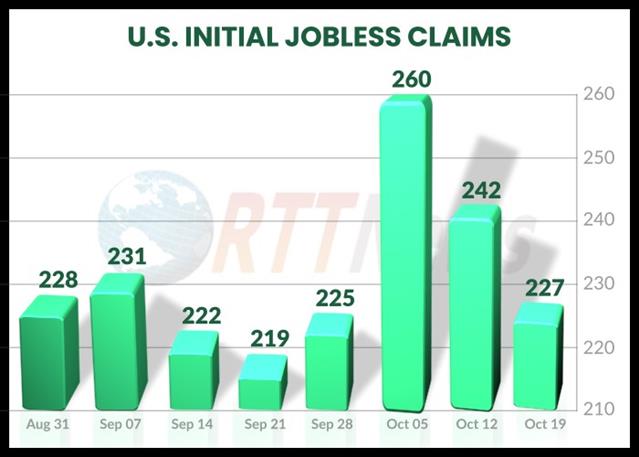Asian Markets Trade Mostly Lower
Asian stock markets are trading mostly lower on Thursday, despite the broadly positive cues from Wall Street overnight, amid much uncertainty about the interest-rate outlook, while traders braced for ...

Asian stock markets are trading mostly lower on Thursday, despite the broadly positive cues from Wall Street overnight, amid much uncertainty about the interest-rate outlook, while traders braced for the release of key U.S. inflation reading, due later in the week for directional cues. Shares of energy firms struggled a bit due to sluggish oil prices. Asian Markets closed mostly higher on Wednesday.
Hawkish comments from some US Fed officials, and uncertainty on the geopolitical front in the Middle East and Europe also weighed on sentiment.
Fed governor Michelle Bowman recently warned of upside risks to the inflation outlook and reiterated the need to keep borrowing costs elevated “for some time”.
Bowman’s counterpart Lisa Cook said that the timing of any rate adjustment will depend on how economic data evolve and what they imply for the economic outlook and balance of risks.
The Australian market is significantly lower on Thursday, adding to the losses in in the previous session, despite the broadly positive cues from Wall Street overnight. The benchmark S&P/ASX 200 is falling to be a tad above the 7,700 level, as traders react to hot inflation data that stoked fears the Reserve Bank of Australia could raise interest rates again as early as next month.
The benchmark S&P/ASX 200 Index is losing 77.10 points or 0.99 percent to 7,705.90, after hitting a low of 7,654.20 earlier. The broader All Ordinaries Index is down 74.30 points or 0.93 percent to 7,948.60. Australian stocks ended significantly lower on Wednesday.
Among major miners, Rio Tinto is edging down 0.5 percent, BHP Group is losing more than 1 percent and Mineral Resources is down almost 1 percent. Fortescue Metals is flat.
Oil stocks are mostly lower. Woodside Energy is down almost 1 percent, Beach energy is losing more than 2 percent, Santos is declining 1.5 percent each and Origin Energy is edging down 0.1 percent.
In the tech space, Afterpay owner Block is declining more than 1 percent, WiseTech Global is down almost 1 percent and Xero is edging down 0.4 percent, while Appen is adding more than 1 percent and Zip is gaining almost 2 percent.
Among the big four banks, Commonwealth Bank, Westpac and ANZ Banking are losing almost 2 percent each, while National Australia Bank is declining more than 2 percent.
Among gold miners, Evolution Mining is losing almost 1 percent and Northern Star Resources is declining more than 1 percent, while Resolute Mining is gaining almost 1 percent, Gold Road Resources is edging up 0.1 percent and Newmont is adding more than 1 percent.
In other news, shares in Baby Bunting are skyrocketing 16 percent after the retailer said it still expects pro forma net profit between $2 million and $4 million in financial 2024.
In the currency market, the Aussie dollar is trading at $0.666 on Thursday.
Giving up some of the gains in the previous three sessions, the Japanese market is significantly lower on Thursday, despite the broadly positive cues from Wall Street overnight. The Nikkei 225 is falling below the 39,300 level, with weakness across most sectors led by index heavyweights and technology stocks. Traders react to the sharp depreciation in the yen that has now tumbled to a 38-year low.
The benchmark Nikkei 225 Index closed the morning session at 39,286.52, down 380.55 points or 0.96 percent, after hitting a low of 39,193.51 earlier. Japanese shares ended sharply higher on Wednesday.
Market heavyweight SoftBank Group is edging down 0.4 percent and Uniqlo operator Fast Retailing is declining more than 2 percent. Among automakers, Toyota is losing almost 1 percent and Honda is also down almost 1 percent.
In the tech space, Advantest is edging up 0.1 percent, while Tokyo Electron is losing almost 2 percent and Screen Holdings is declining almost 4 percent.
In the banking sector, Sumitomo Mitsui Financial is edging up 0.5 percent, while Mizuho Financial and Mitsubishi UFJ Financial are gaining almost 1 percent.
Among the major exporters, Canon and Mitsubishi Electric are losing almost 1 percent each, while Panasonic is edging down 0.5 percent. Sony is adding more than 1 percent.
Among other major losers, Daiichi Sankyo losing more than 3 percent, while Sharp, Japan Exchange Group and Daikin Industries are down almost 3 percent each.
Conversely, there are no other major gainers.
In economic news, the total value of retail sales in Japan was up 3.0 percent on year in May, the Ministry of Economy, Trade and Industry said on Thursday – coming in at 13.504 trillion yen. That exceeded expectations for an increase of 2.0 percent, which would have been unchanged from the April reading following a downward revision from 2.4 percent. On a monthly basis, retail sales jumped a seasonally adjusted 1.7 percent after rising 0.8 percent in the previous month.
In the currency market, the U.S. dollar is trading in the lower 160 yen-range on Thursday.
Elsewhere in Asia, Hong Kong is down 1.9 percent, while New Zealand, China, South Korea, Malaysia and Taiwan are lower by between 0.3 and 0.9 percent each. Singapore and Indonesia are up 0.4 and 0.2 percent, respectively
On Wall Street, stocks closed slightly higher on Wednesday after a somewhat sluggish session as investors made cautious moves while awaiting the release of personal consumption expenditures price index report, due on Friday. Data on first quarter GDP, durable goods orders for the month of May, and jobless claims report are also due this week.
The major averages all closed on the positive side. Technology stocks outperformed, lifting the Nasdaq by 87.50 points or 0.49 percent, to 17,805.16. The Dow ended up by 15.64 points or 0.04 percent at 39,127.80, while the S&P 500 settled at 5,477.60, gaining 8.60 points or 0.16 percent.
Meanwhile, tthe major European markets all moved to the downside on the day. The U.K.’s FTSE 100 settled lower by 0.27 percent, Germany’s DAX edged down 0.12 percent, and France’s CAC 40 closed down by 0.69 percent.
Crude oil prices fell on Wednesday after data showed a notable increase in crude inventories in the U.S. last week but recovered and eventually ended the day’s session slightly higher. West Texas Intermediate Crude oil futures for August rose $0.07 at $80.90 a barrel.
- Check out our free forex signals
- Follow the top economic events on FX Leaders economic calendar
- Trade better, discover more Forex Trading Strategies
- Open a FREE Trading Account


